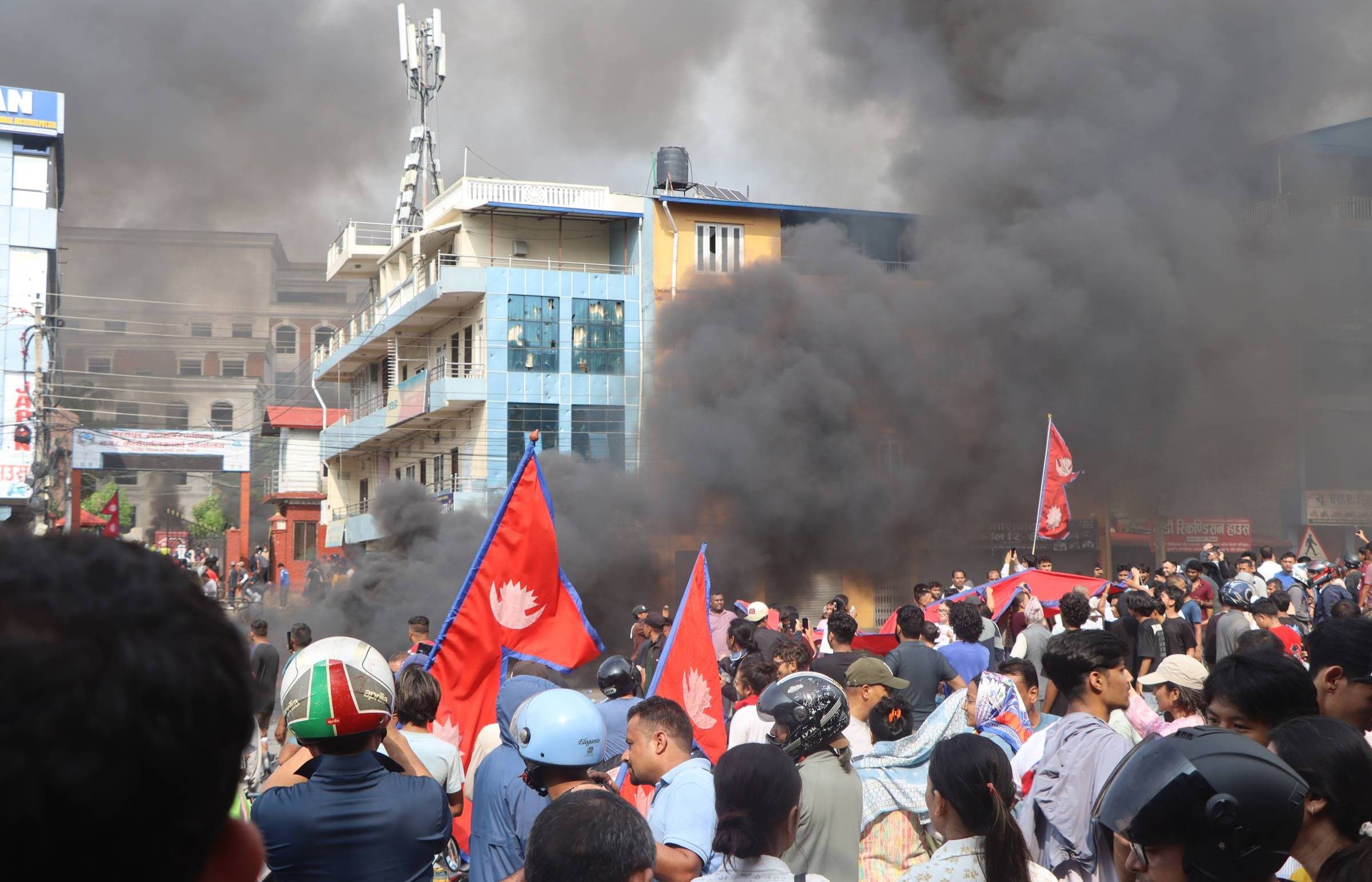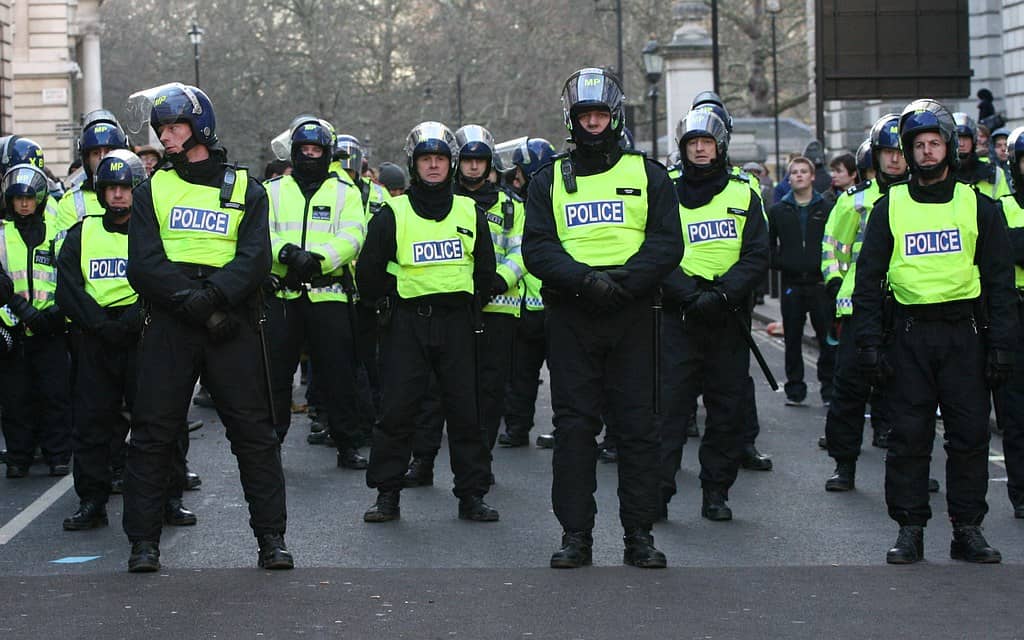Power, protest, and purpose collide in this week’s stories.
In Nepal, it was the youngest voices who refused to be ignored. Gen Z protesters filled the streets, demanding not just access to social media but an end to corruption at the highest levels. Their persistence has already rewritten history, opening the doors of parliament to the country’s first female prime minister. This is proof that protest can break through established power.
Meanwhile, in London, the contrast could not be sharper. Questions over two-tier policing have shaken public trust, as far-right marches are treated with leniency while other demonstrations face overwhelming force and surveillance. Who feels protected, and who feels unsafe, is a question that echoes far beyond the streets.
That same theme plays out in our workplaces. A tribunal ruling has suggested that 'harmony' may take precedence over diversity, giving employers permission to reject candidates on the basis of difference. If belonging comes only by blending in, what does that mean for innovation, fairness, and true inclusion?
And in business, purpose is once again tested against profit. When a co-founder of Ben & Jerry’s declares he can no longer stay in a company where its social mission has been muted, it is a stark reminder of how easily values can be compromised when power shifts.
These stories remind us that power is never fixed, protest can redraw its boundaries, and purpose is only as strong as our willingness to defend it. And to stand by our principles. Something that is often harder than it seems when you set out your purpose.
Stories from the edges this week...

Gen Z Youth Protests Lead to First Female MP in Nepal
The story that really caught our attention is the Gen Z protests in Nepal, leading to the first female MP being appointed. Thousands of protesters, mostly below the age of 30, took to the streets to voice their opposition to a ban on social media sites as well as bigger issues of corruption and nepotism among Nepal’s political elite. Sushila Karki, the new PM, has delivered several high-profile judgments against ministers and senior police officers in corruption cases. The drive of the young people in Nepal who protested inspired us and showed us how societal change can be driven.
|
|

Accusations Of 'Two-Tier' Policing At Protests In London
Contrast the protests in Nepal with what we have seen on the streets of London. An estimated 150,000 protestors joined the ‘Unite the Kingdom’ demonstration, organised by the far-right extremists. Yet despite trouble being widely predicted in advance, the Met deployed just 1,000 officers and arrested just 24 protesters. This compares to the 2,500 officers deployed at the recent ‘Defend our Juries’ protest in support of banned pro-Palestinian campaign groups. There have also been concerns raised about the contrast of facial recognition technology used in the Notting Hill Carnival, but not at the far-right protests.
|
|
|
Employment Tribunal Rules That Bosses Can Reject People Who Support Rival Football Teams
Is the law on the side of encouraging people to work through differences together? A recent employment tribunal has ruled that people can legally be turned down for a job if they support a rival team supported by employees. This ruling is on the basis of office harmony. The ruling said employers had the right to consider whether a prospective employee would get on well with existing staff.
|
|
|
Co-Founder of Ben & Jerry's Quits, Accusing Unilever Of Silencing Social Mission
Differences of opinion and ethos are what have led the Co-Founder of ice-cream brand Ben & Jerry's to quit. The company is owned by Unilever. He said he could no longer “in good conscience” remain an employee of a business that he argued had been muzzled by the UK-listed Unilever. He has Unilever’s move to dismantle Ben & Jerry’s social mission had devalued the business.
|
|
|
More than 60 Tube staff 'at risk of being deported' after immigration rules changed
More than 60 London Underground staff could lose their jobs and face deportation due to a change in the Government’s immigration rules. The bulk of the affected staff came to the UK on skilled worker visas and currently work in Tube stations. The change in the thresholds means that vital workers may have to leave the country.
|
|
|
Taliban bans books written by women from Afghan universities
In Afghanistan, the Taliban government has removed books written by women from the university teaching system in Afghanistan. This new ban has also outlawed the teaching of human rights and sexual harassment. This has resulted in around 140 books by women, including titles like 'Safety in the Chemical Laboratory', being removed.
|
|
|
Fashion is going backwards on diversity, says ex-Vogue boss
Edward Enninful, the former editor-in-chief of British Vogue, has said the 'anti-wokr' and 'anti-DEI' rhetoric risks progress on diversity. Adding that being super-thin and European is often seen as the beauty norm again in the world of fashion.
|
|
|
Four-day-week working council renames non-working day
Cambridge Council works a four-day working week. They have renamed the allocated day off for staff from 'non-working day' to 'scheduled rest day'. South Cambridgeshire District Council said a 'scheduled rest day' was different from a regular rest day in that staff were still under their employment contract and could still be asked to work in exceptional circumstances.
|
Power, protest, and purpose may take different forms. A march by young people in Nepal, a ruling in a London tribunal, or a resignation in a global boardroom, the thread is the same. Progress is shaped by those willing to speak up, even when it costs them. For leaders, the question is not whether these tensions exist, but how we respond to them. Do we shut down differences in the name of harmony, or do we create the space for it to challenge us? Do we protect our purpose when it is tested, or let it fade under pressure?
Our purpose is tested by situations and decisions. It's for leaders to decide how strong those values and purpose are in the decisions they make.